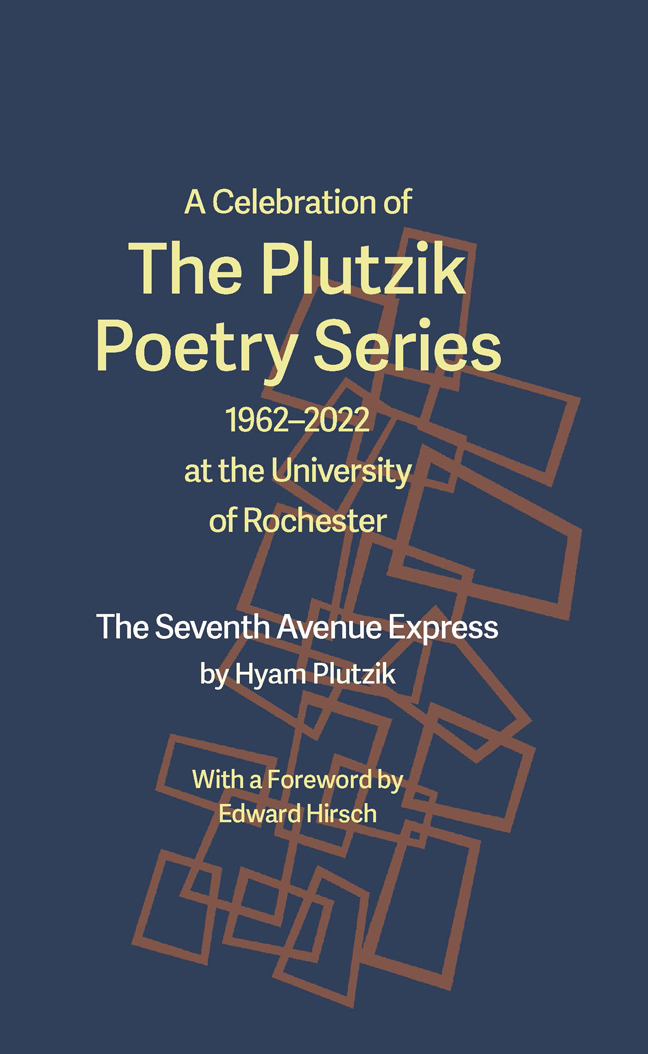Foreword
Published online by Cambridge University Press: 02 March 2024
Summary
Hyam Plutzik made his Whitmanian bid in “The Seventh Avenue Express” to write a long modern poem of the American city. It was 1934. He was twenty-three years old and feeling his way toward his own particular poetic, something he would later describe as “passionately impersonal” and yet nourishing to selfhood (“The Poetic Process”). His remarkable first book, Aspects of Proteus, was still fifteen years away.
Plutzik is writing here at the heart of the Depression. Desperation is palpable everywhere. People are out of work. They have a hunted look, lost, desolate. The crowd that so elated Whitman is foundering in poverty. The setting is the New York subway system. It is hard to see or hear clearly. The yellow light is scant and artificial, the noise deafening. The train is an express, not a local, and it is rushing headlong through an underground world that is dark and dank, gritty, ghostly, and infernal.
I admire the epic ambition in “The Seventh Avenue Express.” Like Whitman, Plutzik was working as a reporter in Brooklyn when he roamed the city streets and moved among the populace. Reading and rereading his poem on the way to work in Manhattan—I also ride the #2 line, which is still the Seventh Avenue Express—I found myself catapulted into the past, into a time that still resonates today. It is hard to discern the faces of other commuters because everyone is masked and guarded. We, too, are working through an era of extreme strangeness.
Plutzik’s update on Whitman makes me think of more mature and accomplished long poems by two of his older contemporaries: Federico García Lorca’s Poet in New York (1929–30) and Hart Crane’s The Bridge (1930). These poems have the same time signature as “The Seventh Avenue Express.” They are on the same wavelength. Like Lorca, Plutzik found the city alien and hostile to nature. He roamed everywhere and found the atmosphere surreal. Like Crane, Plutzik tried to hold on to an American ideal in the face of a faltering American dream. He also wrote through a sunken urban squalor to find a grail of holy light.
Like Lorca and Crane, Plutzik wanted to extend Whitman’s American vision into the contemporary world. Like them, he also had to contend with the overwhelming influence of T. S. Eliot’s The Waste Land (1922).
- Type
- Chapter
- Information
- A Celebration of The Plutzik Poetry Series1962-2022 at the University of Rochester, pp. vii - xPublisher: Boydell & BrewerFirst published in: 2024

